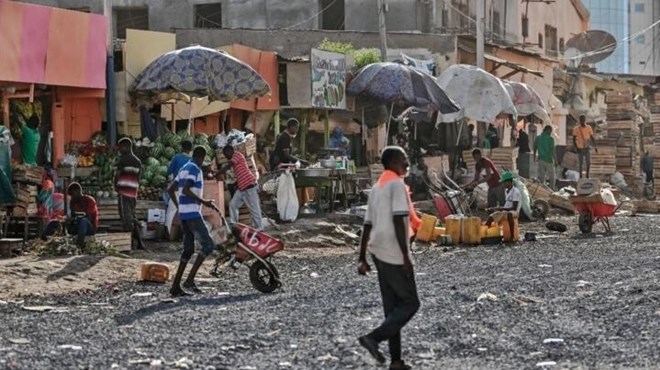
Monday May 1, 2023

Street vendors work in a section of the main market on the eve of national elections in the capital Djibouti on April 8, 2021. © Tony Karumba, AFP
The government of Djibouti announced Sunday a crackdown on irregular migration, with state-run television reporting that about 3,000 people had been rounded up by police to be deported.
Interior Minister Said Nouh Hassan said the strategic Horn of Africa nation had become "saturated" by an influx of people from neighbouring countries, with 220,000 arriving "illegally" in 2022 alone.
Djibouti, which has a population of around one million, lies on an often perilous migration route from Africa for people fleeing conflict and climate disasters or seeking a better life.
Hassan said in a televised address that Djibouti had decided to take action to protect the "well-being and safety of its population" and to control the flow of migrants into the country.
"The security forces were forced this Sunday... to carry out an emergency operation to combat crime and the trafficking of illicit goods observed in a certain sector of Djibouti city," he said.
State-run television RTD reported that around 3,000 people had been detained in the operation and taken to deportation centres to be transported in trucks back to their country of origin.
"These operations will continue throughout the territory," Hassan said.
He said irregular migrants who were employed in the informal sector could register and be provided with "circulation documents" on condition that their employers declared them to the local authorities.
For those without work, "we invite them to return immediately and voluntarily to their country of origin", he said.
He said there was a 30-day deadline for the irregular migrants to abide by the new rules.
"Illegal immigrants are like a time bomb in Djibouti, there are so many of them," Bilan, a jobless 45-year-old in Djibouti told AFP, declining to give his full name.